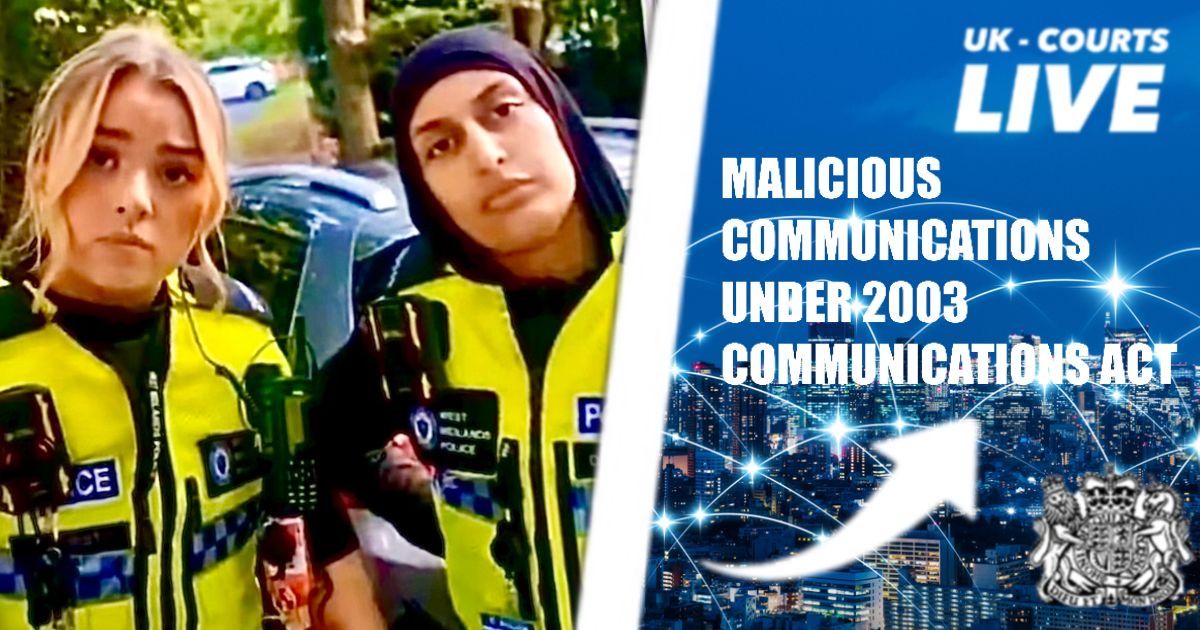🔴 WALSALL TEEN QUESTIONED FOR MALICIOUS COMMUNICATIONS
Fake social media account used to send indecent messages sparks police probe as Walsall teen voluntarily attends station amid viral online controversy
A teenager from Walsall has been questioned by police on suspicion of committing the offence of malicious communications after allegations that a fake social media account was used to send indecent messages in the name of another person.
West Midlands Police confirmed they received a complaint from a member of the public who reported that their identity had been copied online and that the fraudulent account had been used to transmit messages of what officers described as an “incredibly serious nature”. Detectives said the content had caused “serious concern” for the victim and that enquiries were immediately launched to identify the individual believed to be behind the account.
As part of the investigation, officers carried out several attempts earlier this month to make contact with the suspect, who cannot be named for legal reasons, at her home address in Walsall. On 13 September, police spoke directly with the girl’s mother and explained the nature of the allegations, confirming that they would need to interview her daughter and seize her mobile phone for examination.
The following day the girl attended a police station voluntarily, where she was formally interviewed under caution. Her attendance was not under arrest but part of a voluntary process designed to allow investigators to put questions to her and preserve relevant evidence. The police have confirmed that the girl’s phone is being treated as a potential exhibit in the case.
The offence being examined is defined in law as sending indecent or grossly offensive communications over a public electronic communications network, with the potential to cause distress or anxiety to the recipient. Under section 127 of the Communications Act 2003, such an offence carries a range of penalties, from fines to custodial sentences, depending on the severity of the messages and the impact on the victim. Investigators have indicated that the nature of the alleged messages, combined with the method of transmission via a social media platform, makes s.127 a likely framework for any formal charge, although enquiries remain ongoing.
Detectives have stated that enquiries remain ongoing and that further evidential work will be required before a decision is made on any potential charge. No arrest has been made at this stage and the matter remains under active investigation.
A short, heavily edited video of officers visiting the family home has been widely circulated online, fuelling a false narrative about the case.
The footage, marked by abrupt jump cuts and omissions, has been promoted by major social media influencer accounts in the UK and US, gaining millions of views.
In the clip, the girl’s mother repeatedly claims police were investigating her daughter simply for “viewing social media posts”. At one point, an officer can be heard stating: “If we are not able to seize this phone, we will have to escalate this further which means your daughter will get arrested.” The mother responds: “For what? Viewing a social media post?!.” The video closes with her accusing officers of harassment and demanding they leave. All relevant explanations by officers are deliberately removed.
West Midlands Police have directly rebutted the claims, noting the footage was filmed by the mother during ongoing attempts to contact the suspect, which resulted in her voluntarily attended a police station the following day. The suspect is accused of targeted harassment of a girl by sending messages “of an incredibly serious nature” that caused serious concern for the victim.
ACCESS TO THE LAW: MALICIOUS & OFFENSIVE COMMUNICATIONS
The alleged conduct in this case—sending indecent or grossly offensive messages via a social media platform—can fall under two key pieces of legislation: the Malicious Communications Act 1988 (MCA 1988) and the Communications Act 2003 (CA 2003, s.127).
Under section 1 of the MCA 1988, it is an offence to send a letter, electronic communication, or other article with intent to cause distress or anxiety. The law explicitly covers messages that are indecent, grossly offensive, or threatening, where the sender intends to target a specific individual. Penalties range from fines to custodial sentences, with the most serious cases involving sustained harassment or highly offensive content potentially attracting longer terms in custody. In the Walsall case, the use of a fake social media account impersonating a victim would make the targeted harassment element particularly relevant under s.1 MCA 1988, as prosecutors could argue that the intent was personal and directed, not simply general public messaging.
Section 127 of the Communications Act 2003 makes it an offence to send a message over a public electronic communications network that is grossly offensive, indecent, obscene or menacing. Unlike MCA 1988, s.127 does not require proof of intent to cause distress to a specific individual, focusing instead on the nature of the message itself. Convictions can carry fines, community sentences, or imprisonment, depending on severity and aggravating factors.
In practice, cases like this can be charged under either Act. Authorities may prefer s.127 CA 2003 if they wish to emphasise the public nature of the social media transmission, or s.1 MCA 1988 if the focus is on the targeted harassment element and direct impact on the victim. Prosecutors often assess the available evidence, the victim profile, and the precise content before deciding which statute to invoke.
Well, that’s all for now. But until our next article, please stay tuned, stay informed, but most of all stay safe, and I’ll see you then.



